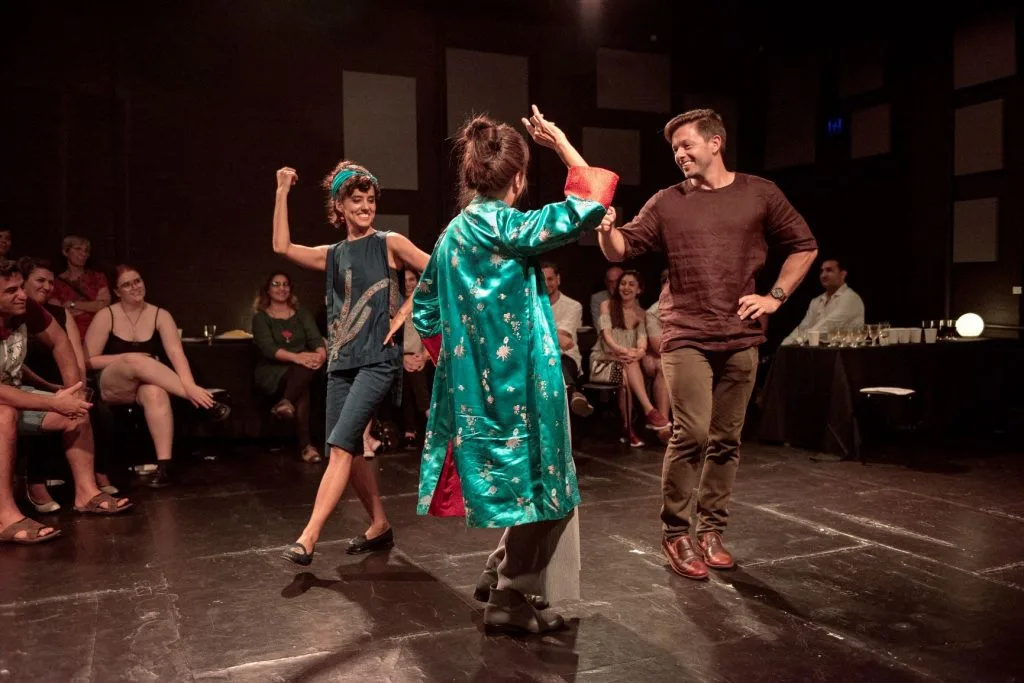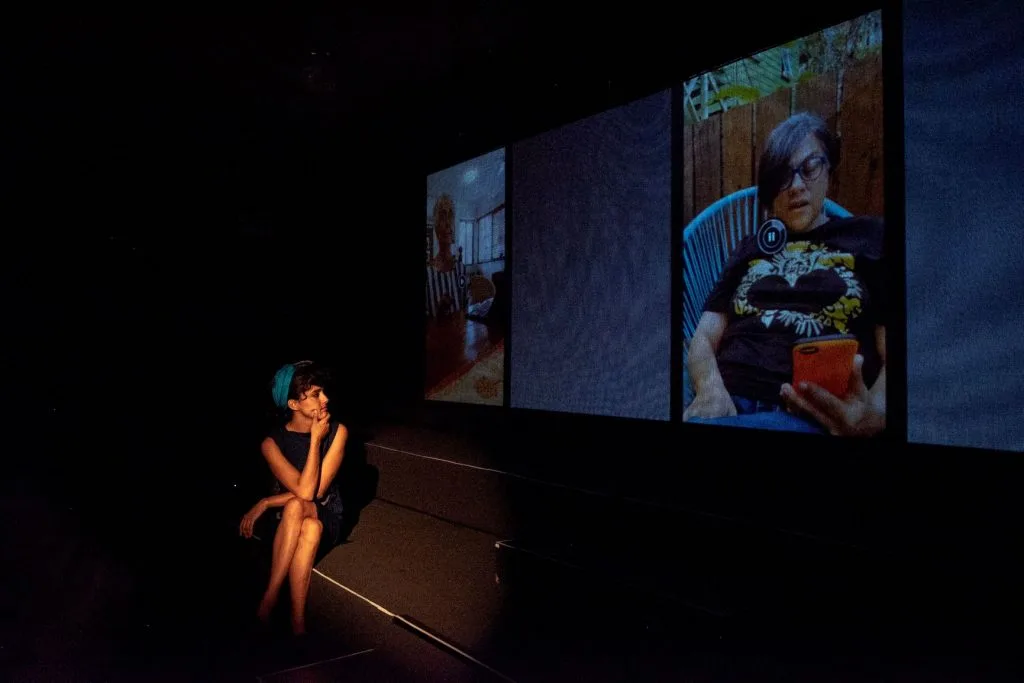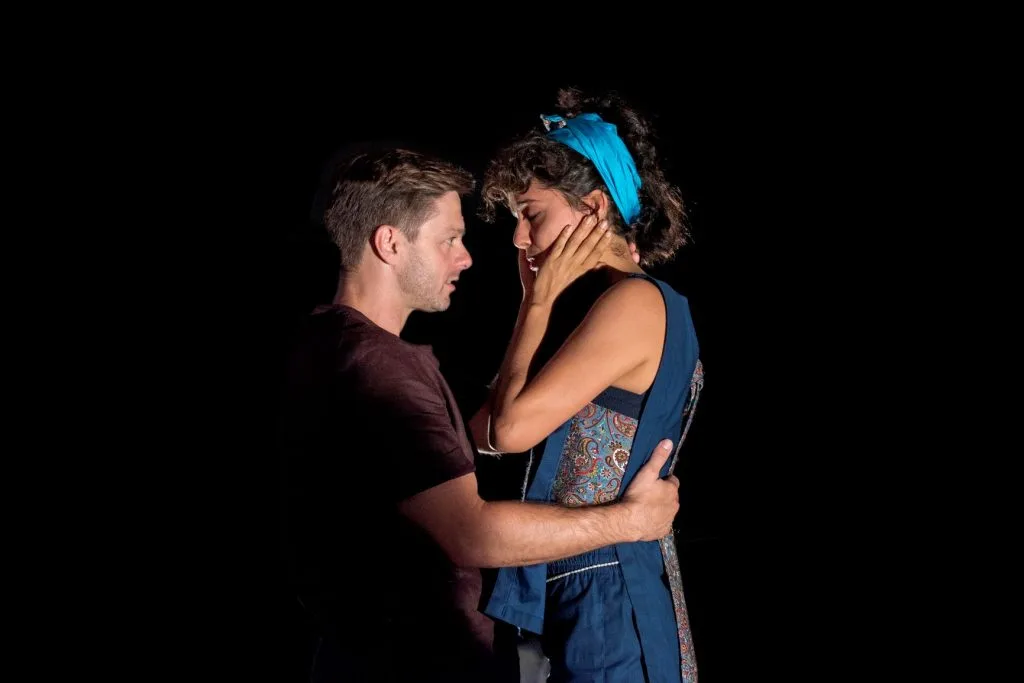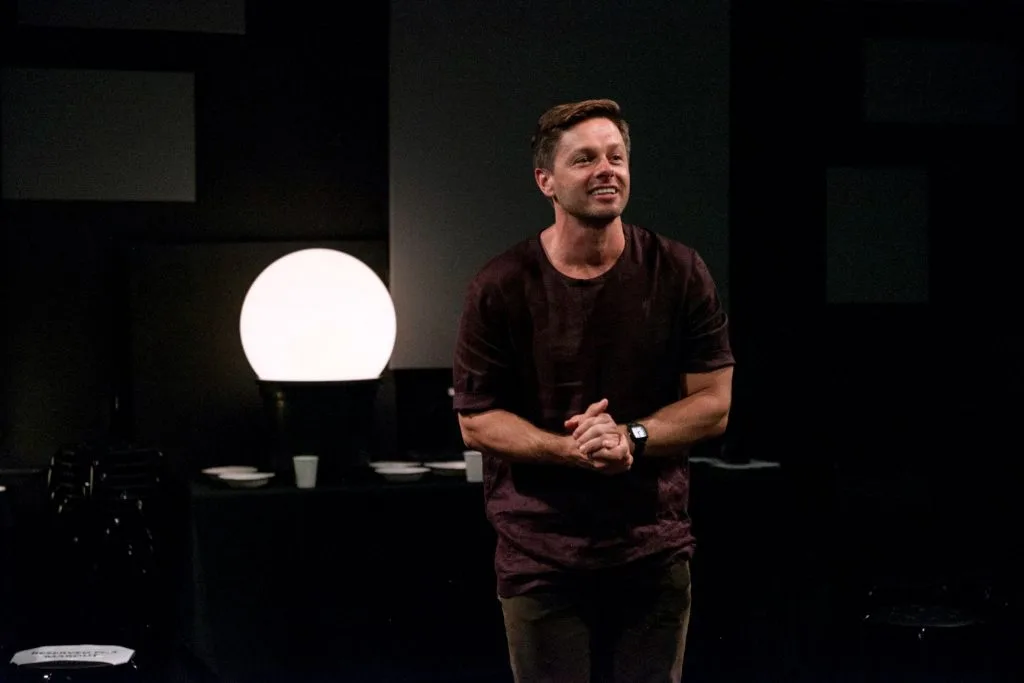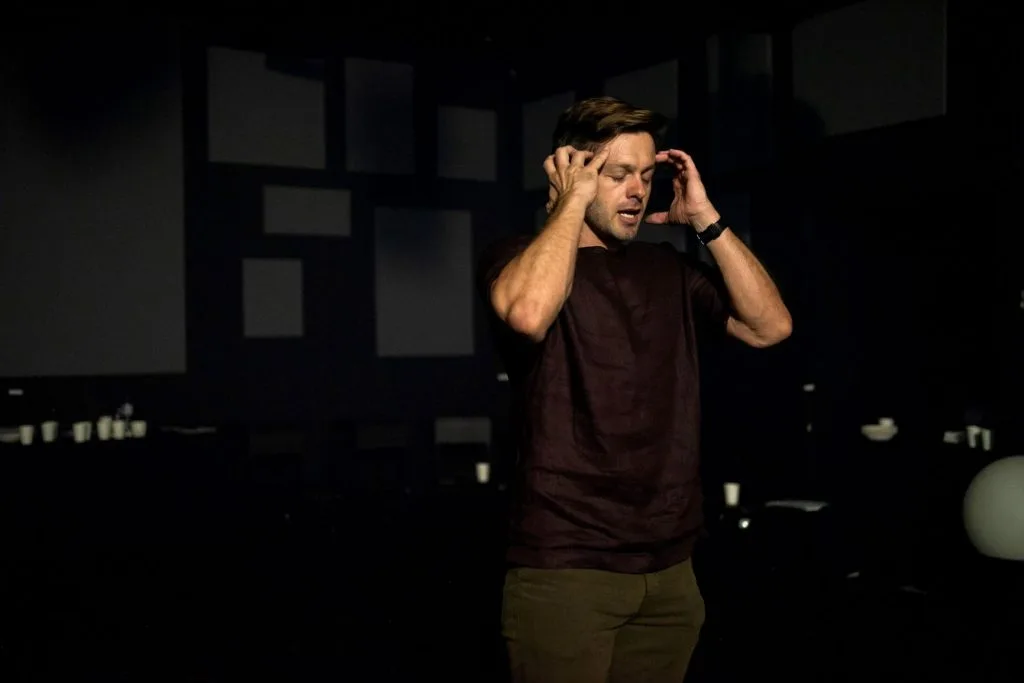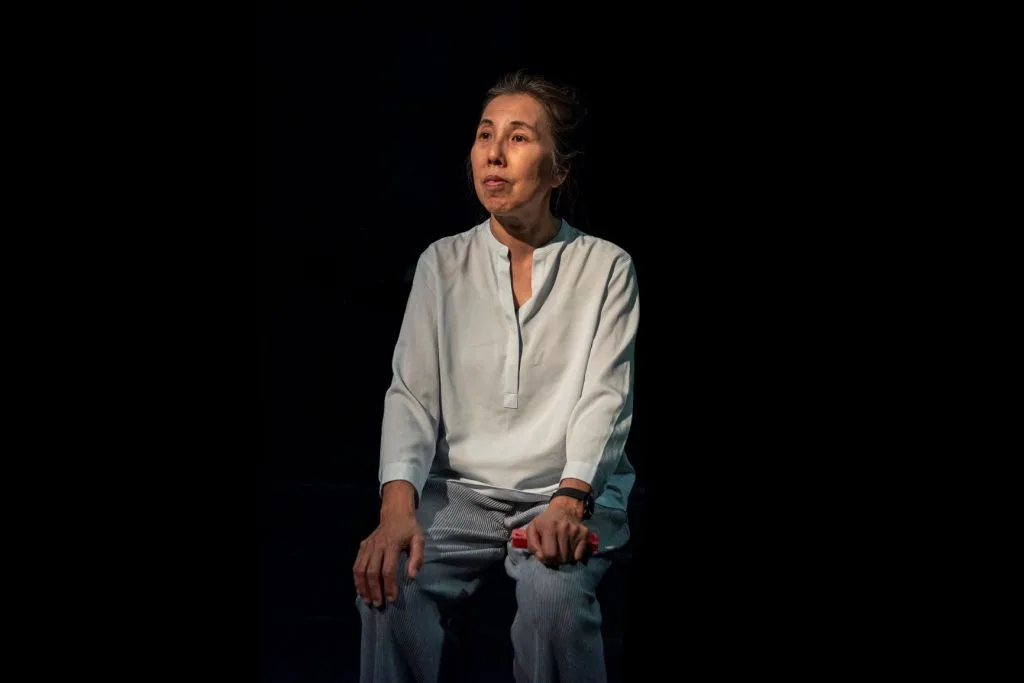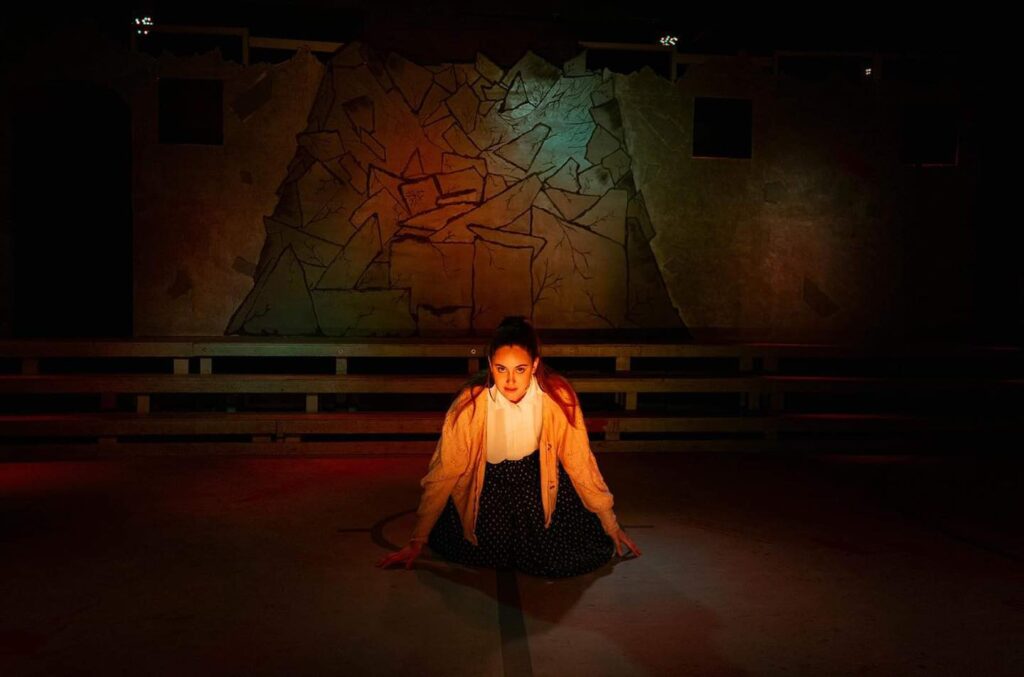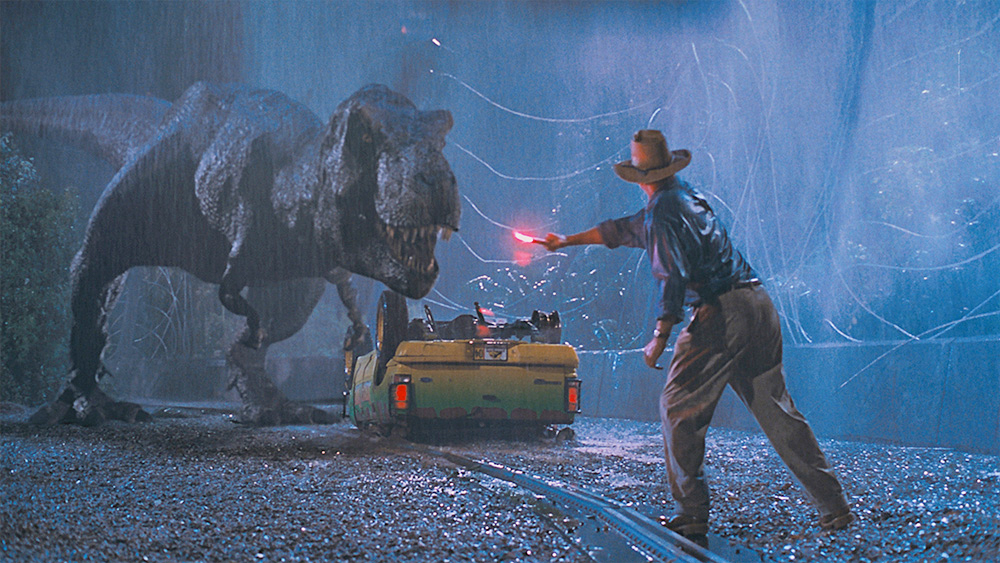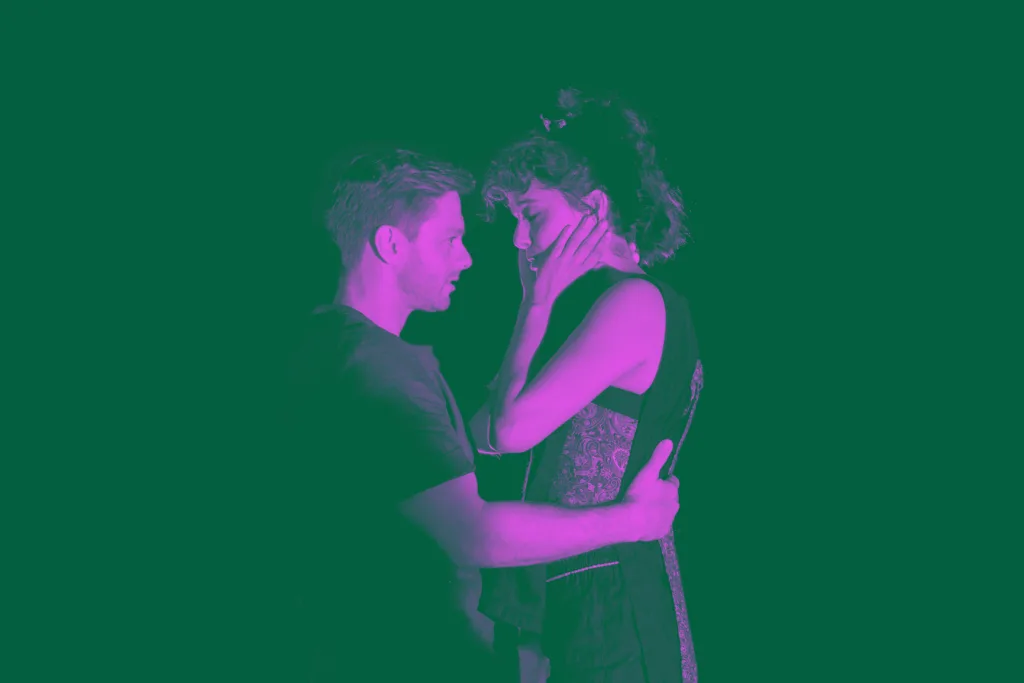
‘Tower of Babel’ // Metro Arts and Baran Theatre
‘Tower of Babel’ was necessary.
This past weekend, Baran Theatre presented ‘Tower of Babel’ at the Sue Benner Theatre, an interactive space within Metro Arts. The simple, almost auditorium style-turned promenade theatre allowed the audience and cast to dance together to festive Persian rhythms, laugh in unison, and feel things they perhaps would have never felt on their own.
As the crowd entered from the upstage right, the fourth wall had already been broken. Trays of Kashke Bademjan, and other traditional Persian dips and bread, lined the edges of the stage. Full wine glasses stood idle to the side, and no one was seated; not a single person. Nervous energy soon filled the immersive space as audience members began to question where the actors were and how they should interact with the furniture. Suddenly, an eccentric man and a charming, kimono-draped woman directed the crowd to a cluster of small black stools by the stage wall, and as the lights dimmed, the action began.
‘Tower of Babel’, originally a myth from Genesis 11:1–9, is often used to explain why humanity speaks many different languages. The play held similar intentions, most notably when faces young and old, ranging in ethnicities and expressions, were projected high onto the venue walls.
The figures shared snippets of their personal stories, some in their own languages. Throughout the story, characters communicate with their families via Skype and Facetime. These conversations are also cleverly projected above the stage, maintaining audience involvement in the characters’ journeys. These audio-visual effects were the strategic work of Production Designer, Freddy Komp in conjunction with Set Builder and Co-Writer, Greg Manning and Lighting Operator, Jason Glenwright. Building on the immersive aspect of the show, at times the sound and lighting team also joined the cast in the performance space.
Complimenting this was clever and symbolic blocking by Co-writer and Director, Nasim Khosravi. She has built a compelling and united piece through meaningful stories of family, love, immigration and displacement. At the beginning of the show, a woman’s face was projected behind the audience. She spoke directly to the same man who directed the crowd earlier, only he remained sitting as if he were an audience member. This immersed the crowd in their dialogue and made them feel included in the discussion. Later Khosravi had one actress begin her scene at the highest point of the theatre, and move slowly but purposefully down each tier of the sloped seating. As she became part of the audience, she continued to reveal more insight about her character and the severance present within her community. Her scene partner during this time was not permitted to climb even the first step; symbolising the separation and detainment experienced by countless refugees, immigrants and their families.
This contemporary interpretation of the Tower of Babel, echoes the Genesis narrative of a united human race over generations, speaking a single language and migrating westward. The script provides commentary on the development of ‘Penglish’, or Persian-English, and some peoples’ distaste for it. It is implied that the moulding of languages can result in less understanding because people lose a part of who they are in the process.
One of the lead performers, Anna Yen, played a mature figure in the story. Not mentioned by name in the program, her character offered wisdom and guidance through genuine dialogue with her scene partners. Yen and her scene partners showed true adoration for each other during their conversations with the audience and used the technique of direct address to explain the premise of the show and their roles.
Afsaneh (Tina) Torabi was compelling in her role. At times it was unclear whether she was acting or reacting on actual experiences from her past. She boasted a strong personality; sure of herself and her purpose, and proud of her heritage. Steven Rooke gave audiences a progressive, relatable young character, striving to understand the culture and pain of his beloved.
Khosravi uses the seemingly unlimited scope of contemporary theatre to unravel the curated stories of the media agenda. She does so by unveiling the suppressed narratives and oft-ignored perspectives of the displaced; the immigrated, and the lost. ‘Tower of Babel’ is a necessary piece of theatre that all audiences are encouraged to attend.
‘Tower of Babel’ performs at Metro Arts until Saturday, 30 November 2019. For more tickets and further information, visit the Metro Arts Website.
Photography by Zohreh Kord.




